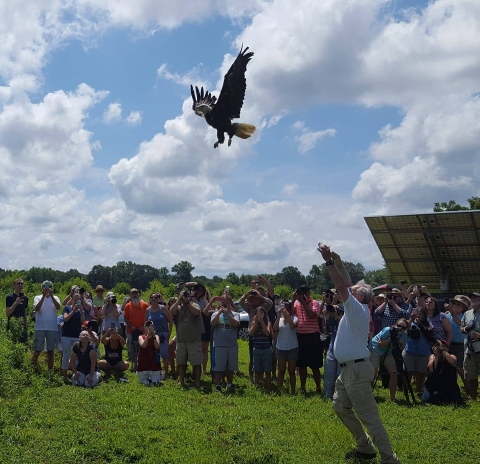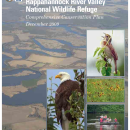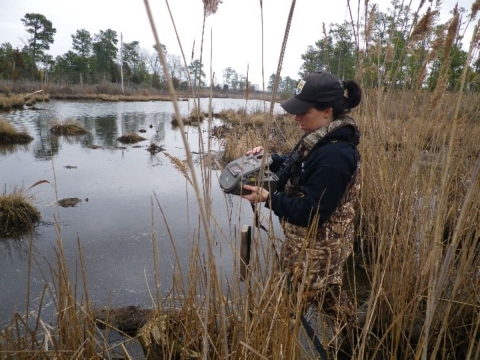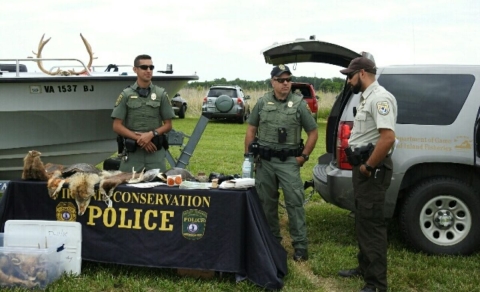What We Do
Rappahannock River Valley National Wildlife Refuge consists of a diverse mix of habitat including grasslands, early successional forest, freshwater and brackish marsh, mixed hardwood forest, and tidal swamp forest. To continue to conserve these habitats, staff conducts management actions including mowing and prescribed fires, chemical and mechanical invasive plant control, and tree plantings to restore former agricultural fields into mixed hardwood forests.
Management and Conservation
Refuges deploy a host of scientifically sound management tools to address biological challenges. These tools span active water management to wilderness character monitoring, all aimed at ensuring a balanced conservation approach to benefit both wildlife and people. At this field station our conservation tool box includes:
Comprehensive Conservation Planning, Habitat Restoration, Conservation Easements, Compatibility Determinations, Cultural Resources, Education & Outreach, Emergency and Physical Security, Fire Management, Invasive Species Control, Inventory and Monitoring, Land Acquisition, Law Enforcement, Minerals Management, Pesticide Management, Recreation Management, and Species Research.
Our Projects and Research
Rappahannock River Valley NWR is made up of multiple units along the Rappahannock River to support watershed conservation with a focus on migratory birds and threatened and endangered species. These units offer a diverse set of resources and habitats such as grasslands, hardwood forests, pine forests, shrubland, freshwater and brackish marshland and riverine habitats which support numerous migratory and breeding birds, at-risk reptiles and amphibians. To meet the needs of these precious resources, we conduct various monitoring surveys as well as habitat management and restoration activities.
Law Enforcement
The Refuge Complex is patrolled by a Federal Wildlife Officer. Please report all wildlife crimes by calling 804-333-1470 ext. 111 or contact the Virginia Department of Wildlife Resources. Please provide as much information on the crime as possible. You may remain anonymous.
Laws and Regulations
Things to know before you go:
Public units are open from sunrise to sunset unless posted.
Pets are prohibited on all refuge units.
Persons processing, transporting, or carrying firearms on National Wildlife Refuges must comply with all provisions of state and local law.
Visitors must stay on designated roads and trails.





